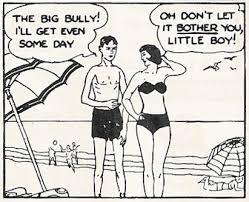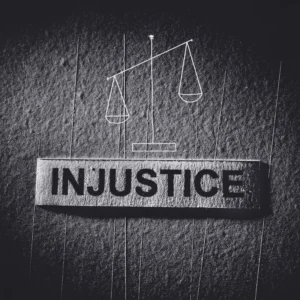
“The Father loves me because I lay down my life that I may have it back again. No one can kill me without my consent—I lay down my life voluntarily. For I have the right and power to lay it down when I want to and also the right and power to take it again. For the Father has given me this right.” John 10:17-18 (The Living Bible)
See? Jesus understands consent.
When you are told to suffer in your abusive relationship “like Christ suffered on the Cross”, you’re being lied to. And it’s a lie from the pit of hell.
Jesus knew that death on the cross would involve humiliation, abuse, physical torture, and suffering. And He chose it willingly out of love for all humanity. (John 3:16-17) Don’t forget, Jesus also knew it was a temporary situation, and that resurrection was just around the corner.
When you got married/started your family, what did you know? What hopes and dreams did you have for your future together? If traditional wedding vows are an example, being loved and honored, growing together, and becoming better people may be some of the things you thought of. Or, maybe you went the silly route, promising to sell all your tacky furniture and be the family spider killer. 🙂
One thing for sure: no one starts a family hoping they’ll be raped, emotionally tortured, isolated from their social supports, and humiliated by the person they gave their heart to. And it’s not what God wants for us either.
Matthew 11:28-30 tells us what life in Christ is supposed to feel like:
“28 Come to me and I will give you rest—all of you who work so hard beneath a heavy yoke. 29-30 Wear my yoke—for it fits perfectly—and let me teach you; for I am gentle and humble, and you shall find rest for your souls; for I give you only light burdens.” (The Living Bible)
But aren’t some burdens and trials just hard by nature? I’m going to ask you to look around your church. Who do the heaviest burdens fall on most often? It’s the women, isn’t it?
Please consider how this idea of “bearing hard/heavy burdens” is often part of an abusive church culture that benefits the men around you. Most churches depend entirely on the unpaid and invisible labor of women, LGBTQ people, and people of color. The white men are just the faces on the brochures and websites who get the credit.
And what happens in church seeps into marriage.
Consider Doug Wilson, pastor at Christ Church in Moscow, Idaho. He openly teaches that sex in marriage isn’t about equal pleasure. Here’s a quote:
“He has written “the sexual act cannot be made into an egalitarian pleasuring party.” Instead, he argues that “a man penetrates, conquers, colonizes, plants,” while a “woman receives, surrenders, accepts,” and that “true authority and true submission are therefore an erotic necessity.” (article written in 2021)
I’m specifically using Wilson as an example because to me, he’s like Westboro Baptist Church. He says very openly what lots of “nicer” Christians carry in their hearts but won’t admit to. And it’s this silence that enables church abusers.
Sometimes, the people who understand this the most are outside the church.
Like in Genesis 20, where Abraham puts Sarah in the dangerous position of saying she’s his sister as they move through a kingdom they know nothing about. Why? Because he’s more worried about his OWN safety than hers. He’s worried he might be killed because Sarah is beautiful. Did you catch that? He blames her.
Sure enough, the king, Abimelech, takes Sarah for himself because he thinks she’s single. God makes him aware of the mistake, and he confronts Abraham about his lies the very next morning.
Abraham victim blames AGAIN, saying he figured Abimelech was godless, had no morals and would kill him to get to Sarah.
“11 Abraham said, “Because I thought, ‘Surely there is no fear or reverence of God in this place, and they will kill me because of my wife.’
He also engages in two things common to abusers:
1) the kind of legalistic weasel wording survivors hear when church leaders justify supporting abusers. (“she actually is my half sister..”)
“12 Besides, she actually is my [half] sister; she is the daughter of my father [Terah], but not of my mother; and she became my wife.”
2) framing dangerous abuse as a test of someone’s “loyalty”. (“this kindness and loyalty you can show me…”)
“13 When God caused me to wander from my father’s house, I said to her, ‘This kindness and loyalty you can show me: at every place we stop, say of me, “He is my brother.”’ (Genesis 20:11-13)
This is Abimilech’s response:
14 Then Abimelech took sheep and oxen and male and female slaves, and gave them to Abraham, and returned Sarah his wife to him [as God commanded]. 15 So Abimelech said, “Behold, my land is before you; settle wherever you please.” (Genesis 20:14-15)
Next, Abimilech, a supposedly “godless” king, addresses the potential harm to Sarah’s reputation. He makes amends to HER personally, eradicating any possibility of rumors the men in her community might spread about her honor. Abraham had no more consideration for this than he did for her physical safety.
“16 Then to Sarah he said, “Look, I have given this brother of yours a thousand pieces of silver; it is to compensate you [for all that has happened] and to vindicate your honor before all who are with you; before all men you are cleared and compensated.” (Genesis 20:16)
Huh. I just now caught something I hadn’t seen before. Abimilech refers to Abraham as “this brother of yours” when he talks to Sarah. Almost like he wants her to know most husbands wouldn’t act this way. I can only read back from my modern point of view and wonder: was this a coded message? Was this foreign king full of empathy for her situation and maybe offering help? There is a lot of silent space in this story.
We often hear from pulpits how laws of hospitality justify violence against women in the Bible. What about hospitality rules in Abimilech’s kingdom? Could they have provided Sarah with a way out of her marriage to a man who gives more thought to his own potential safety than the very real danger he put her in? I don’t know.
I’m going to wrap this post up for now, but there will be more. For now, just remember:
Jesus consented to going to the cross. And He knew resurrection was right around the corner.
Starting a family/getting married does NOT mean you consented to being abused.
Jesus came to lighten our burdens, not impose heavier ones.
Silence in the church is one of the main tools that enables abuse.
That silence and the victim blaming means you may have to count on people outside the church for help. One tool abusers use to prevent this is teaching that non-Christians are “heathens” out to “ruin traditional marriages” or “destroy the church”. What are they so worried about? I thought whatever Jesus blessed couldn’t be destroyed?
That is why they worry. Because they know that protecting abusers and silencing victims/survivors denies Christ.
A word for church leaders reading this: stop enabling this abuse. Stand up and rebuke it loudly. There’s a saying in the DV/sexual assault movement:
It’s odd how every woman knows someone who’s been raped, but no men seem to know any rapists.
The thing is, we do. We know who the creeps, predators, and rapists are in our friend groups. But our silence protects them. And often, just like Abraham, we blame the women in our lives.
“You’re overreacting!” “They’re not that bad.” “I’ve never seen them act like that.”
“But I can’t stop spending time with them! We’ve known each other since high school. They’re my co-worker. It would be awkward.”
Why is our unwillingness to be in an uncomfortable situation, even momentarily, more important than the safety of people we supposedly love?
Until next time.
Btw, if you’re a pastor looking for ways to address this, you can start here. It’s a searchable database of sermons about domestic violence.
Views: 2



